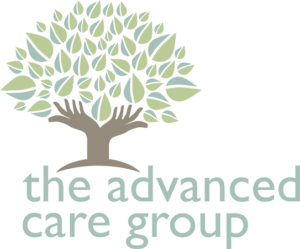A patient’s journey from one healthcare setting to another, like from the hospital to home, can be a critical period. This is especially true for patients with complex conditions. The journey can also be marked by potential gaps in care and the risk of adverse events. So, many people have embraced transitional care management to help ensure these transitions go smoothly. Learn more about transitional care management, including its significant benefits, in the following post.
What is transitional care management?
A statement issued by the American Geriatrics Society defines transitional care management (TCM) as, “a set of actions designed to ensure the coordination and continuity of health care as patients transfer between different locations or different levels of care within the same location.” Furthermore, a variety of healthcare professionals, including the following can provide TCM services:
- Physicians
- Post-acute rehab specialists
- Nurse practitioners (NPs)
- Physician assistants (PAs)
- Nurses
- Social workers
- Case managers
- And other healthcare workers
What is the goal of transitional care management?
Essentially, the goal of TCM is to ensure that patients receive the care they need during the transition from one care setting to another. This can also help to prevent complications, improve patient outcomes, and reduce the risk of readmission. In fact, TCM has been shown to be effective in reducing readmission rates and improving patient outcomes. A study published by the American Medical Association found that TCM reduced the risk of readmission by 20%. Another study published in the National Library of Medicine found that TCM improved patient satisfaction and quality of life.
What are the benefits of transitional care management?
The benefits of TCM are vast. Here are just a few:
- Reduced Hospital Readmissions: By providing comprehensive support and ensuring continuity of care, TCM has proven to significantly reduce hospital readmissions. Through careful discharge planning, medication management, and ongoing communication, potential gaps in care are addressed, and patients are better equipped to manage their health after leaving the hospital.
- Enhanced Patient Satisfaction: TCM places a strong focus on patient-centered care and involves patients in the decision-making process. This patient engagement fosters a sense of empowerment and improves patient satisfaction with their healthcare experience. When patients feel involved and supported during transitions, they are more likely to adhere to treatment plans and achieve better outcomes.
- Improved Health Outcomes: Seamless transitions and continuity of care facilitated by TCM contribute to improved health outcomes for patients. By preventing complications, managing chronic conditions, and promoting self-management, patients experience better recovery, reduced adverse events, and improved overall well-being.
- Cost Savings: TCM has demonstrated cost-saving benefits by reducing hospital readmissions and unnecessary healthcare utilization. By focusing on proactive care management and preventing complications, TCM helps optimize resource allocation, leading to more efficient and cost-effective healthcare delivery.
What services are involved with transitional care management?
The services included in TCM can vary widely depending on the patient’s needs and situation. However, some common services include:
Assessment and Planning
The TCM team will assess the patient’s needs and develop a plan for care. This may include identifying any gaps in care, coordinating care between different providers, and providing education and support to patients and their families.
Medication Management
TCM places a strong emphasis on medication management during transitions. This involves reconciling medication lists, addressing any discrepancies, and educating patients and caregivers about proper medication use, dosage, and potential side effects. By ensuring a clear understanding of medication regimens, TCM helps minimize medication errors and improve patient safety.
Care Coordination and Communication
Effective communication and coordination among healthcare providers play a vital role in TCM. This includes sharing relevant medical information, test results, and discharge summaries to ensure that all involved in the patient’s care are informed and working collaboratively. Strong communication bridges the gaps between different healthcare settings, promoting seamless transitions and continuity of care.
Telehealth
Telehealth services can be used to provide TCM services, such as phone calls, video visits, and secure messaging. It’s typically a convenient option for patients who live in rural areas or who have difficulty traveling to receive care.
Home Visits
Home visits can be helpful for patients who need assistance with activities of daily living, such as bathing, dressing, or cooking. This time is also often used to provide education and support to patients and their families.
Referrals to Specialists
The TCM team can help patients get referrals to specialists, such as cardiologists, oncologists, or physical therapists.
Follow-up Care
The TCM team can provide follow-up care to patients after they are discharged from the hospital. This may include phone calls, home visits, or clinic visits.
Case Management
Case management is a service that helps patients navigate the healthcare system. The case manager can help patients find the right providers, schedule appointments, and get the care they need.
Patient and Caregiver Education
TCM recognizes the importance of patient and caregiver education in promoting self-management and preventing complications. Education includes providing information about the patient’s condition, treatment plan, warning signs, and necessary lifestyle modifications. By empowering patients and caregivers with knowledge and skills, TCM supports them in taking an active role in their own care.
Community Resources
The TCM team can help patients connect with community resources, such as transportation services, meal delivery services, and support groups.
Support for Caregivers
The TCM team can provide support for caregivers, such as helping them learn how to care for a patient with a chronic condition.
When is transitional care management used?
Transitional care management (TCM) can be used in a variety of situations. Some of the most common include:
- Hospital to home: TCM can help patients transition from the hospital to home after an illness or injury. This can include providing education about their condition, medication management, and support for caregivers.
- Skilled nursing facility (SNF) to home: TCM can help patients transition from an SNF to home after rehabilitation. This can include providing education about their condition, medication management, and support for caregivers.
- Home to home: TCM can help patients who are discharged from the hospital or skilled nursing facility to another home, such as a long-term care facility or a friend or family member’s home. This can include providing education about their condition, medication management, and support for caregivers.
- Outpatient clinic to home: TCM can help patients who are discharged from an outpatient clinic to home after receiving care for a chronic condition. This can include providing education about their condition, medication management, and support for caregivers.
- Emergency department to home: TCM can help patients who are discharged from the emergency department to home after receiving care for a minor injury or illness. This can include providing education about their condition, medication management, and support for caregivers.
TCM can also involve other healthcare settings, such as long-term care facilities, rehabilitation centers, and mental health facilities. The specific healthcare settings involved in TCM will vary depending on the patient’s needs.
In Conclusion
Transitional care management is a crucial component of healthcare that ensures smooth transitions for patients as they move from one care setting to another. TCM helps bridge gaps in care, reduce hospital readmissions, improve patient satisfaction, and enhance health outcomes. By focusing on the unique needs of patients during critical transitions, TCM plays a vital role in optimizing their recovery and overall well-being.
As the healthcare landscape continues to evolve, transitional care management is becoming increasingly recognized and valued as an essential component of high-quality care. Healthcare providers are embracing TCM to ensure seamless transitions, prevent complications, and promote successful patient outcomes.
The incorporation of TCM into healthcare systems not only benefits patients but also contributes to the overall efficiency and sustainability of the healthcare system. By reducing hospital readmissions and unnecessary healthcare utilization, TCM helps allocate resources more effectively and reduces the financial burden on patients and the healthcare system.
Transitional Care Management at The Advanced Care Group
At ACG, we provide 24/7 comprehensive TCM services, helping to bridge any gaps in care and improve patient outcomes and satisfaction. We tailor our transitional care plans to fit each individual patient’s needs and goals. If you are considering transitional care management for you or a loved one, contact us at 615.941.8550.
 About The Advanced Care Group
About The Advanced Care Group
The Advanced Care Group (ACG) is a healthcare company based in Middle TN that specializes in providing full-service medical management for patients with acute and chronic conditions in both the home and the skilled nursing facility setting. Our home-based (in-home) medical care provides support for patients with complex medical conditions like a chronic or serious illness, injury, disability, or following a major surgery. Our in-patient skilled nursing services include acute and chronic disease management with a focus on transitioning the patient from hospital to home or long-term disease/distressful symptom management for long-term care patients.
Disclaimer
This blog provides general information and discussions about health and related subjects. The information and other content provided in this blog, or in any linked materials, are not intended and should not be construed as medical advice, nor is the information a substitute for professional medical expertise or treatment.
If you or any other person has a medical concern, you should consult with your healthcare provider or seek other professional medical treatment. Never disregard professional medical advice or delay in seeking it because of something read on this blog or in any linked materials. If you think you may have a medical emergency, call your doctor or emergency services immediately.
The opinions and views expressed on this blog and website have no relation to those of any academic, hospital, health practice, or other institution.

